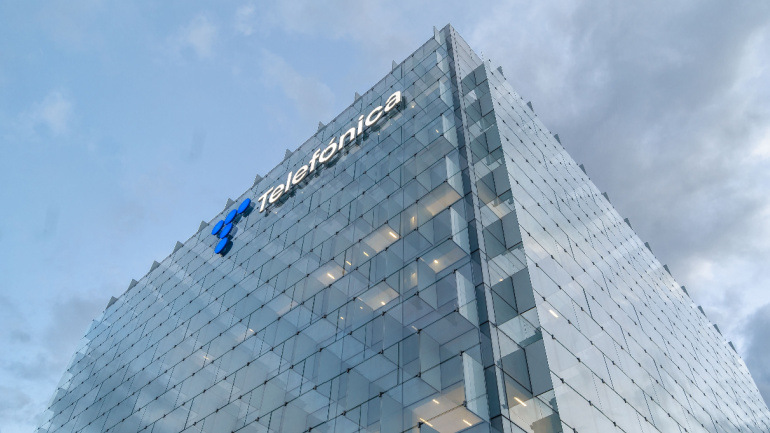The future of high-quality broadband access hinges on fiber investment, with interest spanning government, media, and network operators. Its value is in optimization, sustainability, and compatibility with the future. This technology could reshape industries, from education to smart city initiatives. The European Commission’s ambitious Digital Deco 2030, aiming to extend gigabit services to its entire populace by 2030, reflects global recognition of broadband’s potential in economic growth. Nevertheless, the disparity in gigabit-digital access remains a concern, prompting a focus on all-optical fiber networks. This reality becomes evident with Omdia’s Fiber Development Index (FDI), offering a diverse range of fiber investment metrics.
Gartner forecasts a huge 20.4% increase in public cloud services expenditure by 2024, hitting an astounding $679 billion. This surge in spending could be primarily driven by business needs and innovative technologies like generative AI. Interestingly, all cloud market segments Gartner monitors are set to grow, with Infrastructure-as-a-service (IaaS) leading the pack at 26.6%. That said, as the cloud market evolves in response to business outcomes, non-technical issues such as cost, privacy, and sustainability are crucial considerations for an effective GenAI deployment.
Telefonica embarks on a bold plan to revitalize its cash flow and revenues. In a strategy termed ‘GPS’, it plans to amplify free cash flow generation, while also targeting significant growth in various sectors like retail and digital services. Interestingly, the plan marries stringent financial targets with the crucial aspect of digital transformation – an ambitious endeavor that could redefine the company’s standing moving forward.
Telefónica, a Spanish operator group, is set to acquire the remaining shares of Telefónica Deutschland, taking a decisive leap in consolidating their place in the European telecom sector. This bid, however, isn’t without its potential hurdles. For stakeholders to see potential, they need to be convinced the company’s predicted growth won’t overshadow the offered price. Meanwhile, a surprising twist comes into play as Saudi operator group, STC, expresses its interest to buy a stake in Telefónica, triggering a wave of political interest in Spain.
Taking bold steps towards combatting climate change, Japan’s leading telecom firm, NTT DoCoMo, unveils ambitious initiatives looking to drastically cut its scope 3 emissions. These indirect emissions derive largely from the supply chain, making up approximately four-fifths of the company’s total greenhouse gas output. Taking the bull by the horns, DoCoMo is charting an eco-conscious path, pledging to fully utilize renewable energy sources and implement energy-saving measures across its network. With an eye on the future, the telecom titan plans to transform its supply chain to become environmentally friendly by 2040, all while leveraging technology to help suppliers and customers visualize their carbon footprint. As the telecommunications industry continues to battle climate change, stay tuned for further updates.
The Port of Tyne, a key player in UK’s maritime infrastructure, is embarking on an exciting technological journey, partnering with Ericsson and BT to establish 4G and 5G private network connectivity. By engaging revolutionary standards in safety, efficiency, and sustainability, the Port aspires to become an exemplar among smart ports. Uniquely, the port-wide private network incorporates both 4G and 5G standalone connectivity, benefitting legacy devices while enabling cutting-edge 5G applications. This technological upgrade paves the way for futuristic applications that could revolutionize port operations while reducing carbon emissions. Learn more about this visionary initiative and its potential implications for the maritime industry.
Telecom News | Week #44: T Challenge, End of Vodafone Spain, Nokia’s Technology Strategy 2030, Samsung and O2 testing vRAN.
The looming merger of Vodafone and Three in the UK sparks heated debate. Anticipated job creation sits around 12,000, yet union estimates portend a job cut of around 1,000 to 1,600. Amidst global job-shedding by Vodafone and Three’s concerning job loss record, an £11 billion pledge to enhance network coverage brings a glimmer of hope. However, hazy figures on staffing levels and possible challenges accessing skilled labor add to the uncertainty.
Taking leaps in autonomous network management, Telefónica skillfully navigates the complex landscape, developing standards and aligning with recognized organizations. With their Autonomous Network Journey program, they unravel the value of AI and machine learning at multiple levels. With successful solutions like Vivo Config, they’ve achieved substantial work savings and dramatically reduced network alarms and reworks, while actively focusing on energy efficiency and emissions reduction – invaluable attributes in the era of sustainability.
5G – a transformative force reshaping engagement and innovation parameters, and serving as an unbeatable tool in the delivery of public services. A recent discussion convened by industry experts highlighted the profound ways 5G is set to transform public service delivery. The prime objective? To nurture an environment of growth through collaboration, aligning 5G deployments with societal needs and creating impactful outcomes. Public authorities are encouraged to adapt, to harness the power of 5G and transform public service delivery. The journey of 5G is only just beginning.













